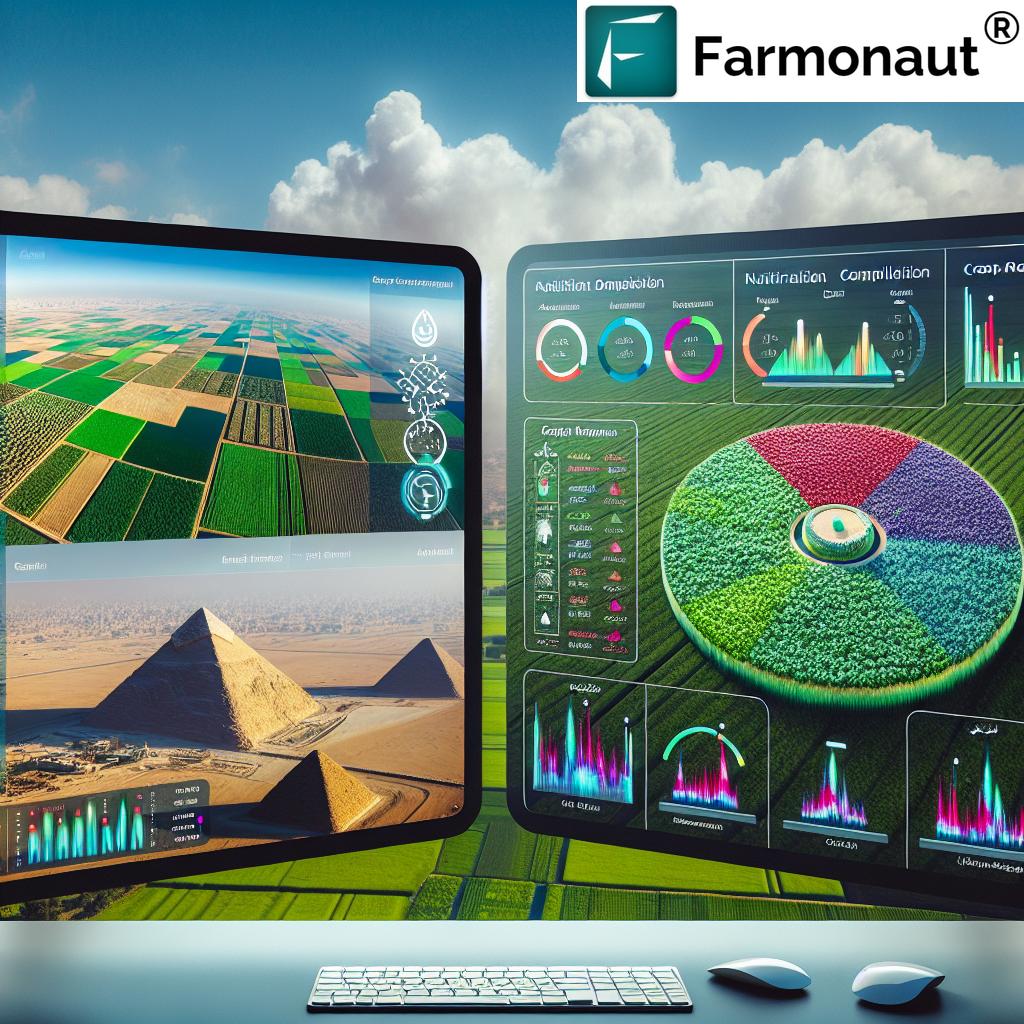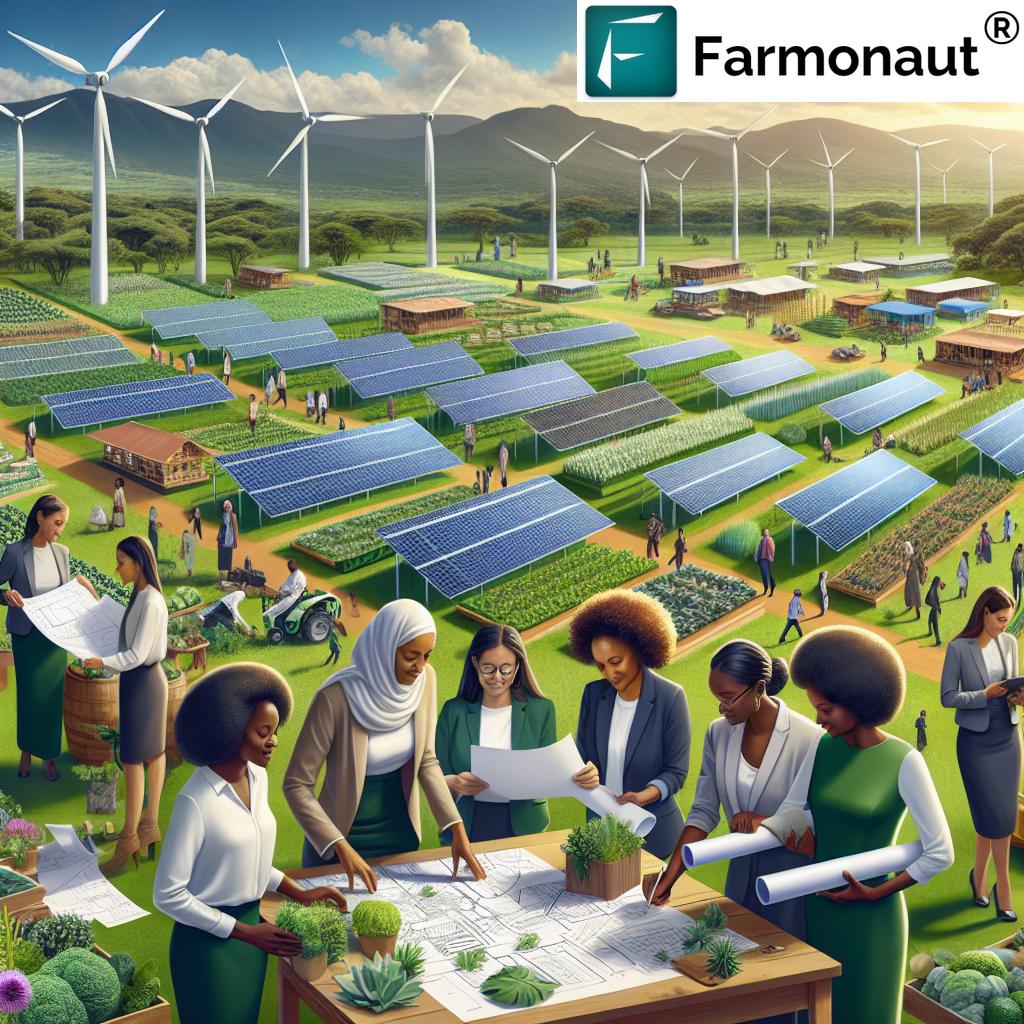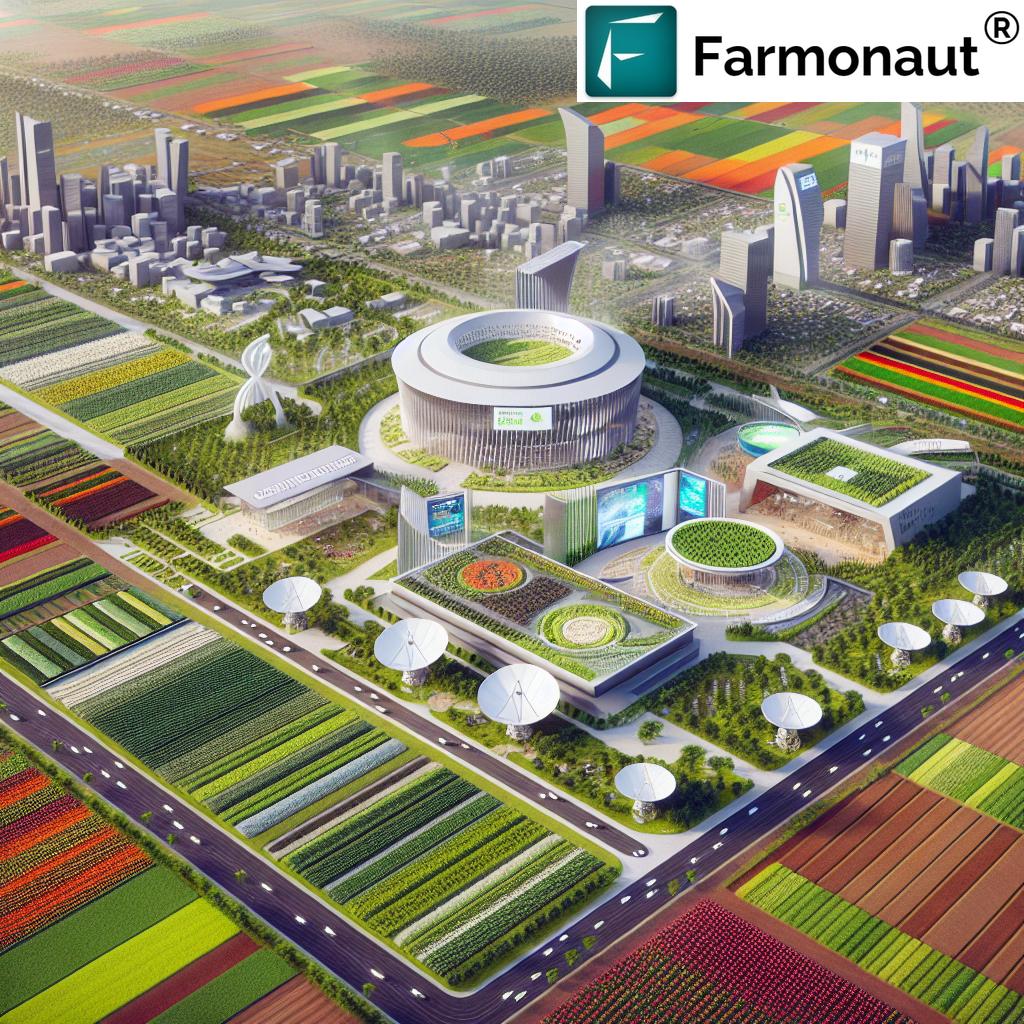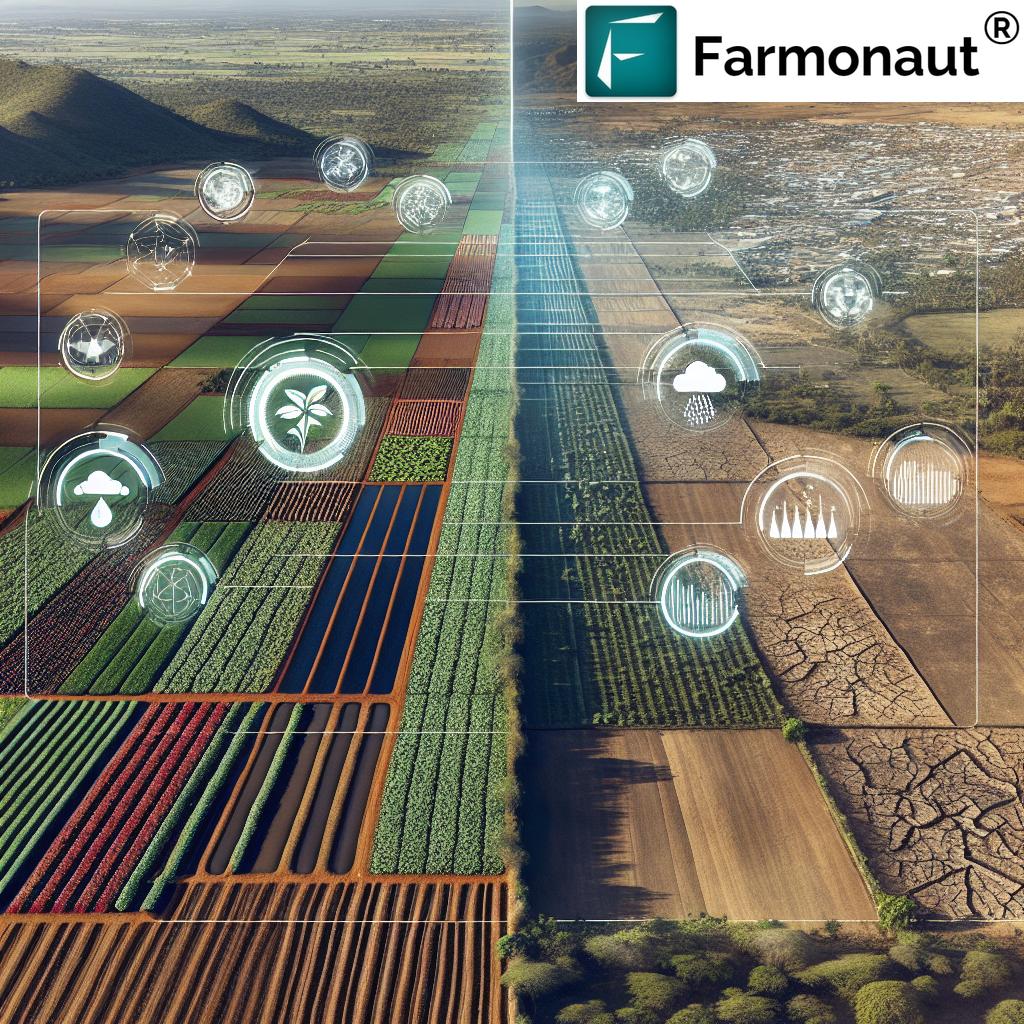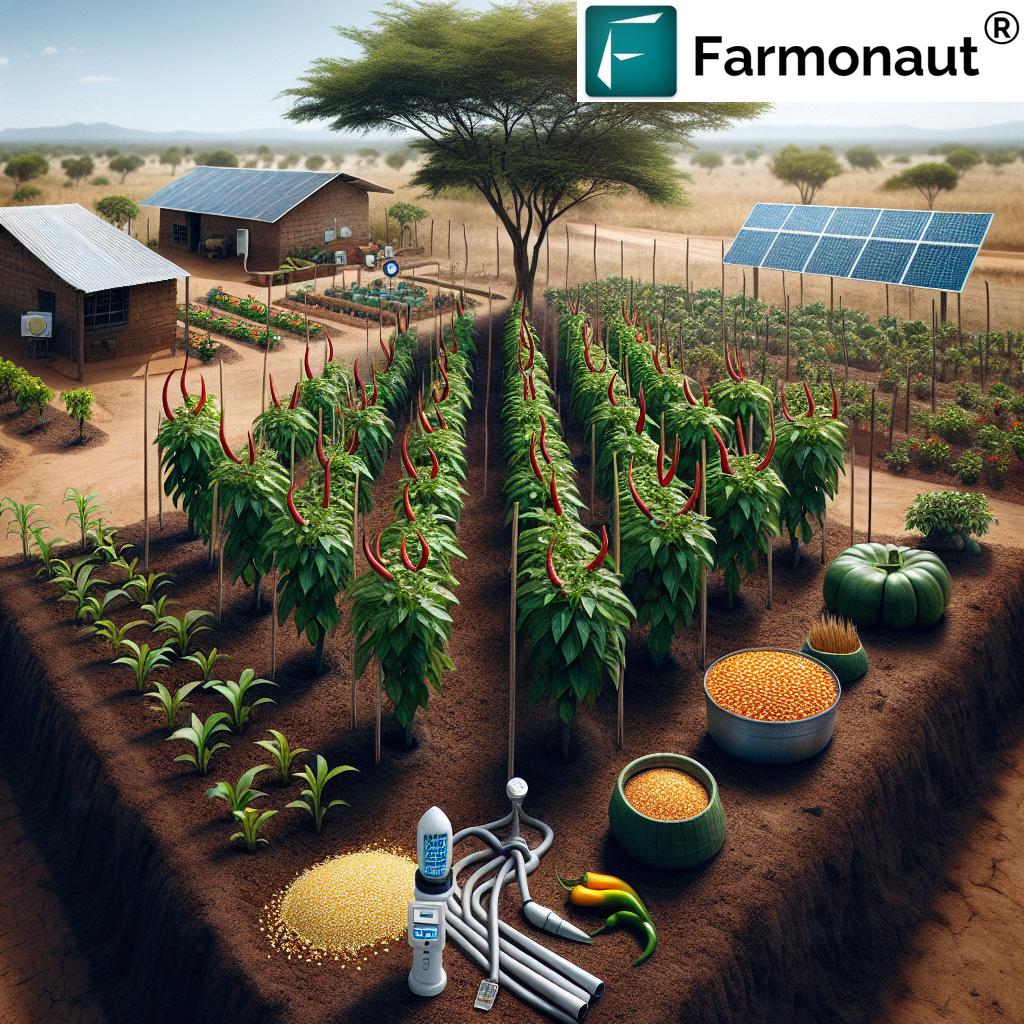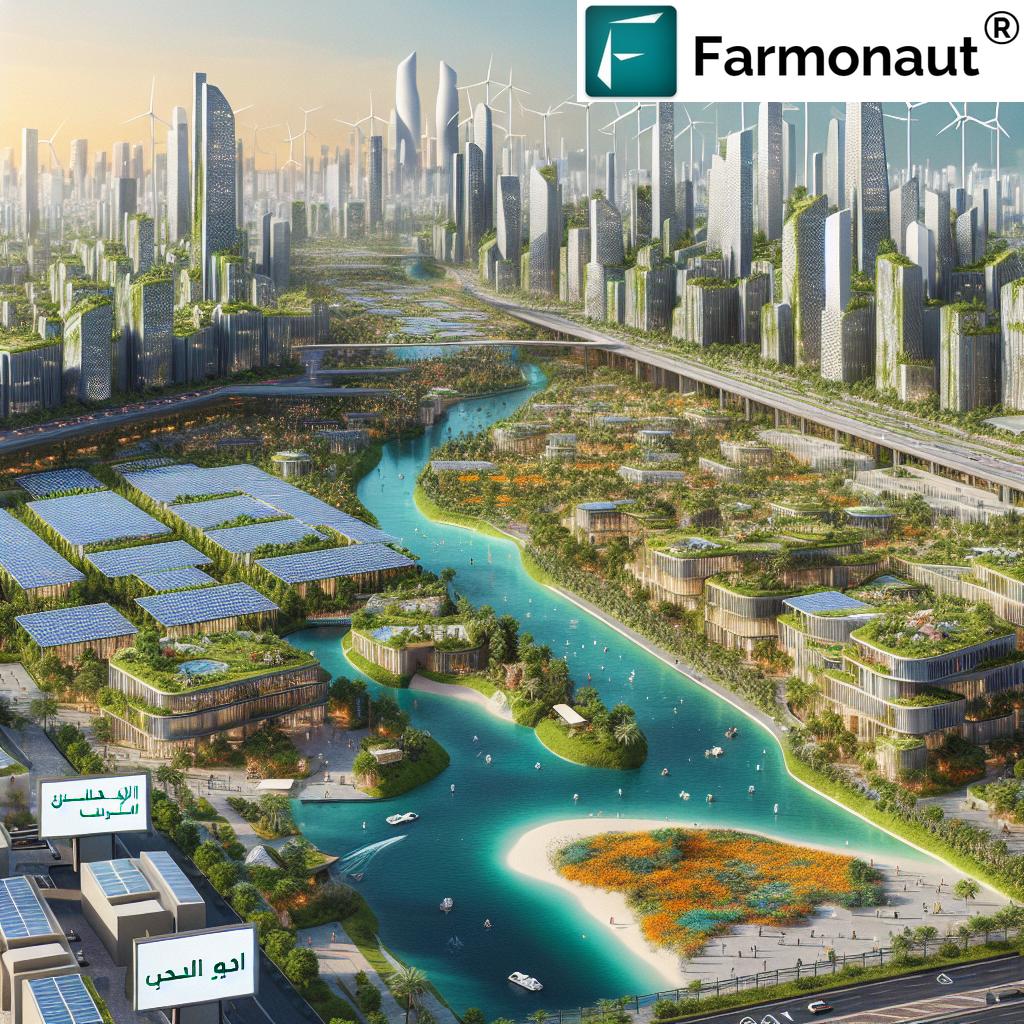Unlocking Sustainable Growth: Egypt and Saudi Arabia’s Environmental Cooperation for a Greener Middle East
“Egypt and Saudi Arabia collaborate on over 5 key environmental areas, including water management and circular economy implementation.”
In the heart of the Middle East, a remarkable partnership is blossoming between two of the region’s most influential nations. Egypt and Saudi Arabia have joined forces to tackle pressing environmental challenges, setting a precedent for sustainable development in an area often associated with resource scarcity and ecological fragility. As we delve into this groundbreaking collaboration, we’ll explore how these two countries are working hand in hand to create a greener, more sustainable future for the entire region.
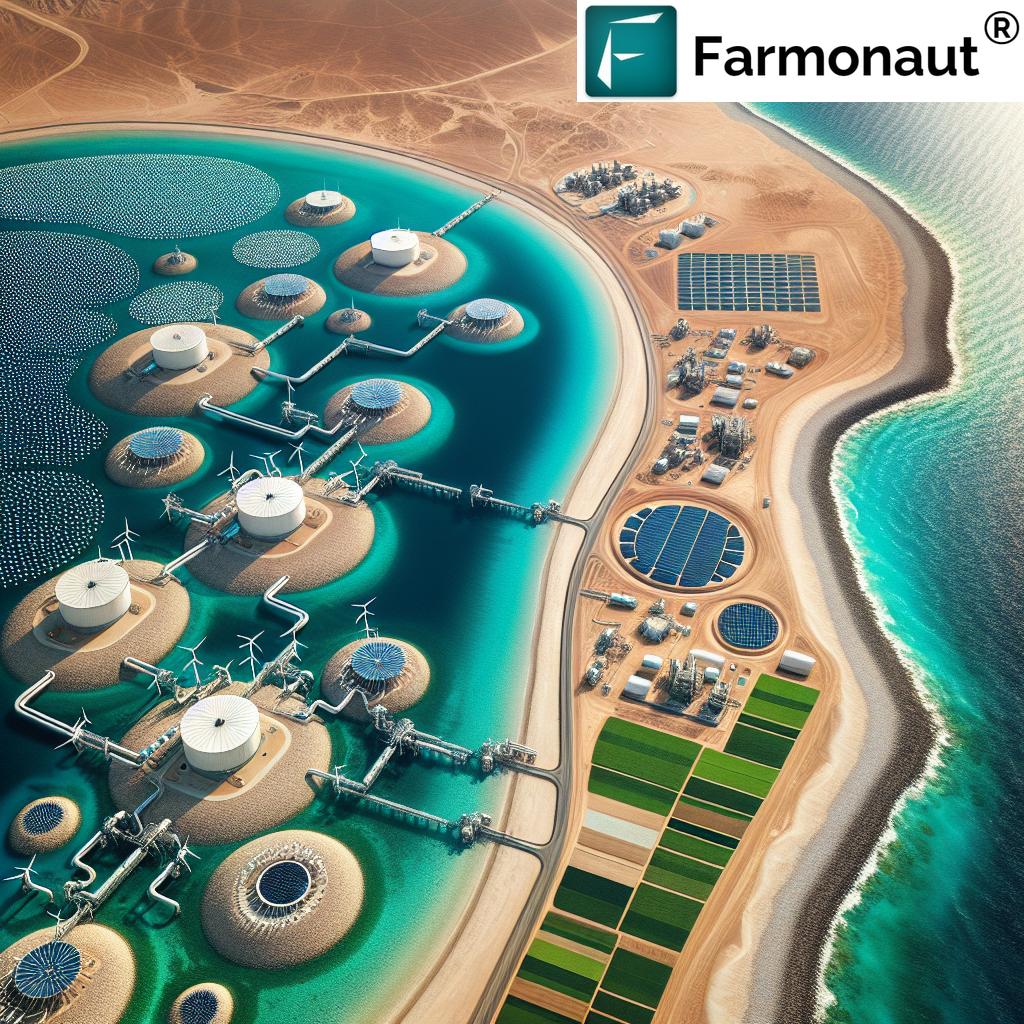
Our journey through this environmental cooperation will take us from the shores of the Red Sea to the fertile banks of the Nile, examining innovative approaches to water management, circular economy implementation, and agricultural waste solutions. We’ll uncover how these nations are balancing economic growth with ecological preservation, and explore the potential for this partnership to serve as a model for sustainable development across the Middle East and beyond.
The Foundation of Environmental Cooperation
The cornerstone of this environmental alliance was laid during a pivotal meeting between Dr. Yasmine Fouad, Egypt’s Minister of Environment, and Eng. Abdulrahman Al-Fadhli, Saudi Arabia’s Minister of Environment, Water, and Agriculture. This high-level engagement, occurring on the sidelines of Egypt’s handover of the presidency of the 21st Session of the Ministerial Council of PRSGA to Jordan, marked a significant step forward in regional environmental governance.
During their discussions, both ministers emphasized the critical nature of their cooperation, especially in light of global political challenges. They recognized that this is a crucial time for environment ministers worldwide, necessitating stronger joint efforts to find sustainable solutions to pressing ecological issues.
Key Areas of Environmental Collaboration
The bilateral meeting between Egypt and Saudi Arabia focused on several crucial areas of environmental cooperation:
- Water Management in the Red Sea Region
- Circular Economy Implementation
- Agricultural Waste Solutions
- Eco-friendly Industrial Development
- Lake Restoration Projects
- Renewable Energy Efforts
- Plastic Pollution Reduction
These focus areas demonstrate the comprehensive approach both nations are taking to address environmental challenges while promoting sustainable economic growth.
Sustainable Water Management in the Red Sea
One of the most critical aspects of the Egypt-Saudi Arabia environmental cooperation is the joint effort to manage water resources in the Red Sea region. This collaboration is crucial, given the ecological significance of the Red Sea and its importance to both countries’ economies and environmental well-being.
We’re seeing innovative approaches to water conservation, desalination, and marine ecosystem protection. For instance, both countries are investing in advanced desalination technologies that minimize environmental impact while meeting the growing water demands of their populations. These efforts are complemented by initiatives to protect coral reefs and marine biodiversity, which are vital for the health of the Red Sea ecosystem.
In this context, technologies like those offered by Farmonaut can play a crucial role in monitoring coastal areas and assessing the impact of water management strategies on surrounding agricultural lands. Farmonaut’s satellite-based crop health monitoring system could provide valuable insights into how changes in water management affect vegetation health in coastal regions.
Circular Economy: A New Paradigm for Resource Management
Both Egypt and Saudi Arabia are making significant strides in implementing circular economy principles. This approach aims to minimize waste, maximize resource efficiency, and create sustainable economic models that benefit both the environment and the economy.
Egypt has developed a national strategy for the circular economy, which aims to balance economic development with resource protection. This strategy involves the private sector and encourages innovative approaches to waste management and resource utilization. Saudi Arabia, on the other hand, is focusing on waste management and extended producer responsibility, particularly in sectors like plastics and electronics.
The collaboration between the two countries in this area could lead to groundbreaking initiatives that transform waste into valuable resources, create new industries, and significantly reduce environmental impact. For example, Egypt’s success in converting rice straw from an environmental hazard into an economic opportunity through fertilizer and feed production is a model that could be replicated and expanded through this partnership.
Innovative Agricultural Waste Management Solutions
Agricultural waste management is a critical area where both Egypt and Saudi Arabia are making significant progress. Egypt’s innovative approach to rice straw management serves as a prime example of how agricultural waste can be transformed from an environmental problem into an economic opportunity.
In Egypt, the burning of rice straw was once a major source of air pollution. However, through strategic initiatives and partnerships with youth and the private sector, rice straw is now being converted into valuable products such as fertilizer and animal feed. This not only addresses the environmental issue but also creates new economic opportunities and jobs.
“The Middle East’s environmental cooperation efforts span multiple sectors, addressing at least 7 crucial sustainability challenges.”
Saudi Arabia, facing its own unique agricultural challenges, is keen to learn from Egypt’s experience and adapt similar solutions to its context. The collaboration between the two countries in this area could lead to the development of new technologies and practices that can be applied across the Middle East region.
Here, tools like Farmonaut’s API could be instrumental in monitoring and analyzing the impact of these agricultural waste management solutions. By providing real-time data on crop health and soil conditions, Farmonaut’s technology can help farmers and policymakers make informed decisions about waste management practices and their environmental impacts.
Eco-friendly Industrial Development: Balancing Growth and Sustainability
Both Egypt and Saudi Arabia recognize the need to balance industrial growth with environmental protection. This collaborative effort focuses on developing eco-friendly industrial practices that minimize environmental impact while driving economic growth.
Egypt’s approach involves close cooperation between the Ministry of Environment and the Ministry of Industry to ensure that economic development aligns with environmental protection goals. This includes implementing cleaner production technologies, promoting energy efficiency, and encouraging the adoption of renewable energy sources in industrial processes.
Saudi Arabia, as part of its Vision 2030 plan, is also investing heavily in eco-friendly industrial development. The country is focusing on developing sustainable industrial cities and promoting green technologies across various sectors.
The collaboration between Egypt and Saudi Arabia in this area could lead to the development of new standards and best practices for eco-friendly industrial development that could be adopted across the Middle East. This could include initiatives such as industrial symbiosis, where waste or byproducts from one industry become inputs for another, creating a more circular and sustainable industrial ecosystem.
Lake Restoration Projects: Reviving Aquatic Ecosystems
One of the most ambitious aspects of Egypt’s environmental efforts is the ongoing project to restore the ecological balance of Lake Qarun. This ancient lake, once a thriving ecosystem, has faced numerous challenges due to pollution and changing environmental conditions. Egypt’s comprehensive approach to lake restoration serves as a model for similar projects in the region.
The Lake Qarun restoration project encompasses several key initiatives:
- Upgrading wastewater treatment facilities to reduce pollution
- Implementing sustainable fish farming practices
- Extracting salts from the lake to improve water quality
- Restoring native flora and fauna
Saudi Arabia has expressed keen interest in Egypt’s lake restoration efforts, recognizing the potential to apply similar strategies to its own water bodies. This collaboration could lead to the development of innovative techniques for aquatic ecosystem restoration that could be applied across the Middle East and beyond.
In this context, Farmonaut’s satellite and weather API could play a crucial role in monitoring the progress of these restoration efforts. By providing real-time data on water quality, vegetation health, and other key environmental indicators, Farmonaut’s technology can help researchers and policymakers track the success of restoration projects and make data-driven decisions.
Renewable Energy: Powering a Sustainable Future
Both Egypt and Saudi Arabia recognize the critical role of renewable energy in achieving their environmental and economic goals. The collaboration between these two nations in the renewable energy sector is poised to transform the energy landscape of the Middle East.
Egypt has made significant strides in solar and wind energy, with ambitious plans to increase the share of renewables in its energy mix. The country is home to some of the largest solar parks in the world, including the Benban Solar Park, which is helping to reduce carbon emissions while meeting growing energy demands.
Saudi Arabia, as part of its Vision 2030 plan, is also heavily investing in renewable energy. The country aims to become a global leader in solar and wind energy, leveraging its vast desert areas for large-scale renewable energy projects.
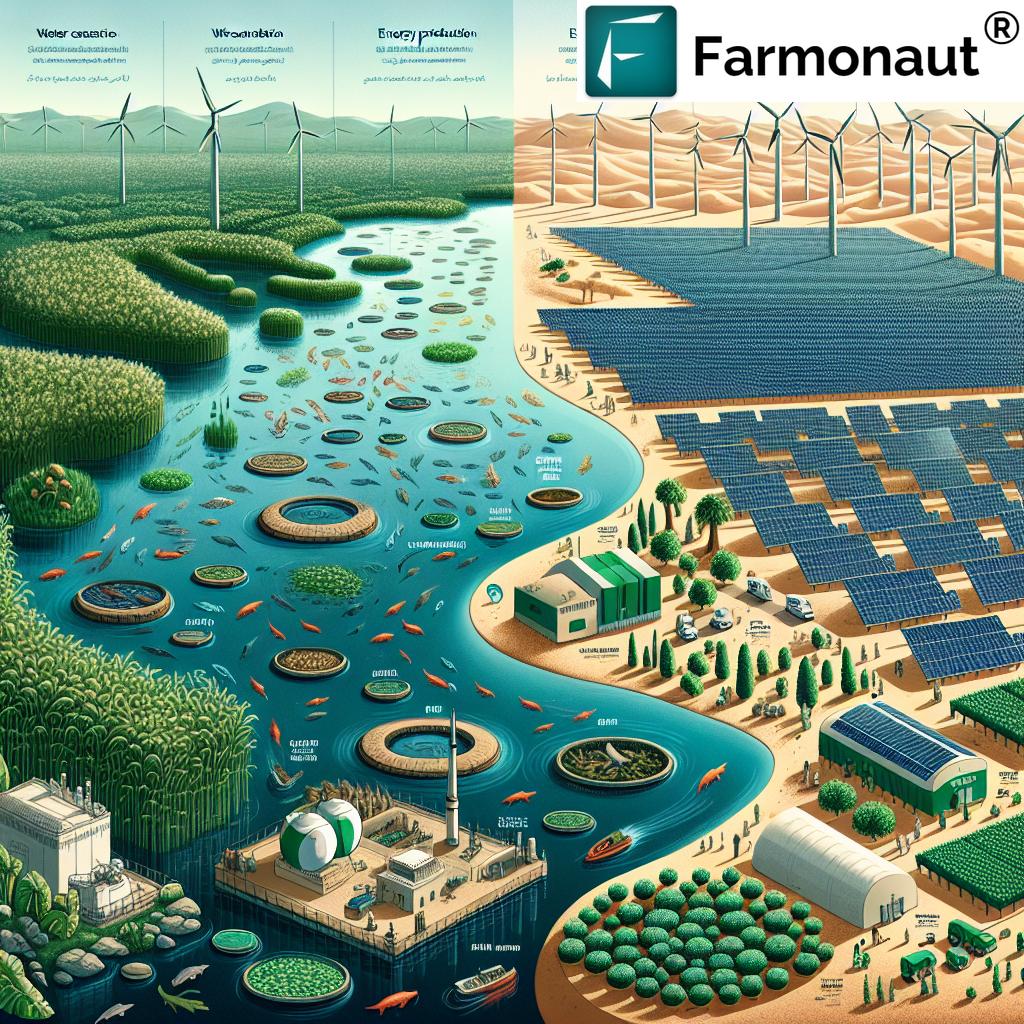
The collaboration between Egypt and Saudi Arabia in renewable energy extends beyond just power generation. Both countries are exploring innovative ways to link renewable energy with other sectors, such as agriculture and water management. This holistic approach, exemplified by Egypt’s “Novi” program, connects energy, food, and water projects to support green transformation through public and private investment.
Plastic Pollution Reduction: Tackling a Global Challenge
Plastic pollution is a global environmental crisis, and both Egypt and Saudi Arabia are taking significant steps to address this issue. Their collaborative efforts in this area could set a new standard for plastic waste management in the Middle East and beyond.
Egypt has implemented several initiatives to reduce single-use plastic bags and has approved an “extended producer responsibility” policy. This policy requires producers and importers to monitor plastic bag quantities and ensure safe disposal while promoting environmentally friendly alternatives. The country is also exploring innovative recycling technologies and promoting public awareness campaigns to reduce plastic consumption.
Saudi Arabia, recognizing the urgency of the plastic pollution problem, is also implementing comprehensive waste management strategies. The country is investing in recycling infrastructure and exploring technologies to convert plastic waste into valuable resources.
The collaboration between Egypt and Saudi Arabia in plastic pollution reduction could lead to the development of regional standards for plastic use and disposal, as well as joint research initiatives to develop biodegradable alternatives to conventional plastics.
Comparative Analysis of Environmental Initiatives
| Initiative Category | Egypt’s Approach | Saudi Arabia’s Approach | Impact Score (1-10) |
|---|---|---|---|
| Water Management in the Red Sea | Advanced desalination, marine ecosystem protection | Innovative water conservation, coastal development regulation | 9 |
| Circular Economy Implementation | National strategy, private sector involvement | Focus on waste management, extended producer responsibility | 8 |
| Agricultural Waste Solutions | Rice straw conversion to fertilizer and feed | Exploring crop residue management techniques | 7 |
| Eco-friendly Industrial Development | Collaboration between Environment and Industry ministries | Sustainable industrial cities, green technology promotion | 8 |
| Lake Restoration Projects | Comprehensive Lake Qarun restoration | Interest in adapting Egypt’s lake restoration strategies | 7 |
| Renewable Energy Efforts | Large-scale solar and wind projects | Ambitious Vision 2030 renewable energy goals | 9 |
| Plastic Pollution Reduction | Extended producer responsibility, single-use plastic reduction | Investment in recycling infrastructure, waste-to-resource technologies | 8 |
The Role of Technology in Environmental Cooperation
In the realm of environmental cooperation between Egypt and Saudi Arabia, technology plays a pivotal role in monitoring, analyzing, and implementing sustainable solutions. Advanced tools and platforms are essential for tracking progress, making data-driven decisions, and ensuring the effectiveness of environmental initiatives.
One such technological solution that could significantly contribute to these efforts is Farmonaut’s satellite-based farm management platform. While not directly involved in the Egypt-Saudi Arabia cooperation, Farmonaut’s technology offers capabilities that align well with the environmental goals of both countries.
Farmonaut’s platform provides:
- Real-time crop health monitoring using satellite imagery
- AI-driven advisory systems for optimal resource management
- Blockchain-based traceability solutions for supply chain transparency
- Tools for efficient fleet and resource management in agriculture
These features could be invaluable in various aspects of the environmental cooperation, from monitoring the impact of water management strategies on agricultural lands to tracking the implementation of circular economy principles in farming practices.
Climate Change Mitigation: A Holistic Approach
Both Egypt and Saudi Arabia recognize that addressing climate change requires a comprehensive strategy that links various sectors and initiatives. This holistic approach forms the foundation of their environmental cooperation and individual national strategies.
Egypt’s “Novi” program exemplifies this integrated approach by connecting energy, food, and water projects to support green transformation. This program aims to:
- Promote renewable energy adoption
- Enhance food security through sustainable agriculture
- Improve water management and conservation
- Mitigate climate change impacts across all sectors
Saudi Arabia’s Vision 2030 plan also incorporates a holistic approach to climate change mitigation, focusing on diversifying the economy away from oil dependence and investing heavily in renewable energy and sustainable development.
The collaboration between Egypt and Saudi Arabia in climate change mitigation could lead to the development of innovative strategies that address multiple environmental challenges simultaneously, creating a more resilient and sustainable future for the Middle East region.
Environmental Investment Opportunities
The environmental cooperation between Egypt and Saudi Arabia is not just about policy and technology exchange; it also opens up significant investment opportunities in the green economy. Both countries are actively seeking to attract private sector involvement in their environmental initiatives, creating a fertile ground for sustainable investments.
Some key areas for potential investment include:
- Renewable energy projects (solar, wind, and green hydrogen)
- Water treatment and desalination technologies
- Waste management and recycling facilities
- Sustainable agriculture and food production
- Green building and sustainable urban development
Egypt’s Future Development Authority, in particular, has been highlighted as a potential avenue for enhancing environmental and climate investments that align with sustainable development goals. This presents an opportunity for both domestic and international investors to participate in the green transformation of the Middle East.
Challenges and Future Prospects
While the environmental cooperation between Egypt and Saudi Arabia shows great promise, it is not without its challenges. Some of the key hurdles include:
- Balancing economic development with environmental protection
- Addressing water scarcity in an arid region
- Implementing and enforcing new environmental regulations
- Securing funding for large-scale environmental projects
- Adapting to the impacts of climate change
Despite these challenges, the future prospects for this cooperation are bright. By combining their resources, expertise, and commitment to sustainability, Egypt and Saudi Arabia are well-positioned to lead the Middle East towards a greener future. Their collaborative efforts could serve as a model for other countries in the region and beyond, demonstrating how nations can work together to address global environmental challenges while promoting sustainable economic growth.
Conclusion
The environmental cooperation between Egypt and Saudi Arabia represents a significant step forward in addressing the pressing ecological challenges facing the Middle East. From innovative water management strategies to ambitious renewable energy projects, these two nations are setting a new standard for sustainable development in the region.
As we’ve explored in this comprehensive overview, the collaboration spans multiple sectors and addresses a wide range of environmental issues. The holistic approach adopted by both countries, linking energy, food, water, and climate change mitigation, offers a promising model for sustainable development that could be replicated across the globe.
While challenges remain, the commitment shown by Egypt and Saudi Arabia to environmental protection and sustainable growth is commendable. Their efforts not only benefit their own citizens but contribute to global efforts to combat climate change and preserve our planet’s precious resources.
As this cooperation continues to evolve and expand, it will undoubtedly play a crucial role in shaping a greener, more sustainable future for the Middle East and beyond. The innovative strategies, technologies, and policies emerging from this partnership have the potential to transform the region’s approach to environmental management and set a new global standard for sustainable development.
FAQ Section
- What are the main areas of environmental cooperation between Egypt and Saudi Arabia?
The main areas include water management in the Red Sea region, circular economy implementation, agricultural waste solutions, eco-friendly industrial development, lake restoration projects, renewable energy efforts, and plastic pollution reduction. - How are Egypt and Saudi Arabia addressing water scarcity issues?
Both countries are investing in advanced desalination technologies, implementing water conservation measures, and exploring innovative approaches to water management in agriculture and urban areas. - What role does renewable energy play in this cooperation?
Renewable energy is a key focus, with both countries investing heavily in solar and wind energy projects. They are also exploring ways to link renewable energy with food and water security initiatives. - How are these countries tackling plastic pollution?
Egypt has implemented policies to reduce single-use plastics and promote extended producer responsibility, while Saudi Arabia is investing in recycling infrastructure and exploring waste-to-resource technologies. - What opportunities exist for private sector involvement in these environmental initiatives?
There are significant investment opportunities in renewable energy, water treatment, waste management, sustainable agriculture, and green urban development projects in both countries.
Earn With Farmonaut
Earn 20% recurring commission with Farmonaut’s affiliate program by sharing your promo code and helping farmers save 10%. Onboard 10 Elite farmers monthly to earn a minimum of $148,000 annually—start now and grow your income!
Farmonaut Subscriptions





